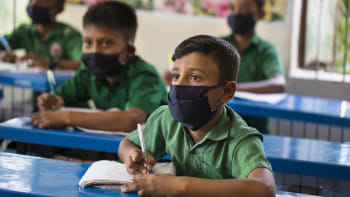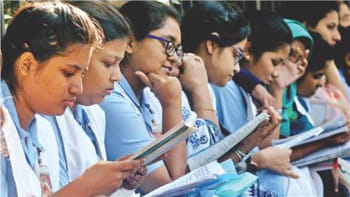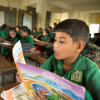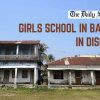All that ails our primary education

The Directorate of Primary Education has recently published results of the seventh national student assessment (NSA), and it reveals a grim picture of the quality of Bangladesh's primary education. The assessment, conducted in 2022, reveals that more than 60 percent of Class 3 students and 70 percent of Class 5 students did not have the expected grade-level proficiency in mathematics. Also, 51 percent of the Class 3 students and 50 percent of the Class 5 students lacked grade-level proficiency in Bangla.
So, according to the performance standards followed for NSA 2022, most of our primary school students can only solve basic maths problems, can follow simple instructions, and acquire a minimum number of the skills prescribed in their curriculum. This also means that these students cannot work independently, cannot connect, interpret, and communicate different ideas, cannot follow systematic methodologies to solve problems, and cannot apply their knowledge to deal with new situations.
Such a bleak scenario in Bangladesh's primary education sector is nothing new, unfortunately. After introducing the NSA in 2006, with a view of measuring the achievements of primary school students in accordance with the curriculum, the government regularly administers this assessment on Class 3 and Class 5 students. The students go through written tests on two foundational subjects (Bangla and mathematics) to assess their literacy and numeracy skills.
Teachers are at the heart of the primary education system and in many countries, teaching at primary schools is a highly-paid, skill-intensive and sought-after job. However, in terms of qualifications, training, and benefits, primary school teachers are some of the most neglected professionals in Bangladesh. Until the government takes pragmatic, research-driven policies to improve the quality of these teachers, there will be little hope to improve the academic performance of primary school students.
Results of the sixth NSA were published in 2017, which was the last NSA before the Covid-19 pandemic. The NSA 2017 also revealed an equally bleak scenario. For instance, it found that around 26 percent of Class 3 students could not demonstrate the expected proficiency in Bangla, and more than 80 percent of Class 5 students failed to demonstrate expected proficiency in Bangla. Back then, more than 60 percent of Class 3 students and more than 80 percent of Class 5 students also could not display the expected proficiency in mathematics.
The NSAs indicate that, in terms of literacy, students are not retaining what they learned in Class 3 after being promoted to Class 5. They are consistently failing to achieve basic maths skills by the time of completing primary education. There might be several factors responsible for this bleak scenario, the major ones being lack of trained and skilled teachers in primary schools. In the NSA 2022 technical report, it has been stated that teachers' skills and sincerity significantly influence students' achievements.
On the other hand, if we look at the current statistics on the educational qualifications and training profiles of primary school teachers, it is easy to see why our students are failing to achieve basic competencies.
According to the Directorate of Primary Education (DPE), the total number of teachers working in all types of primary level institutions is 388,917. Among them, 177,387 do not have honours degrees. A significant number of these teachers have only completed the pass course, a three-year long degree programme under National University, whose quality and acceptability has been questionable for long. Many colleges under the National University have already stopped offering this programme due to its old-fashioned curriculum and extremely low acceptance by employers. Besides this, more than 70,000 primary school teachers only possess a higher-secondary level of education or less.
Although several public and private universities offer specialised degrees for educators, there are only 291 primary school teachers holding these degrees. A considerable number of primary school teachers do hold postgraduate degrees, but they have not specialised in education or pedagogy.
These statistics indicate that most primary school teachers, when they start their career, do not possess the required educational qualifications or do not have any orientation or knowledge about pedagogy or the education system. As a result, the government has to ensure that these teachers receive professional training in the 67 Primary Teachers Training Institutes (PTI) located all over the country. However, due to poor quality of the training methods and lack of participation of the teachers, such training can do little to improve the quality of primary education.
The only dedicated professional degree for primary school teachers offered by PTIs is Diploma in Primary Education (DPEd). Introduced in 2012, it's an 18-month residential course where participants, besides theoretical studies, have to practise teaching in experimental schools attached to respective PTIs and, subsequently, at their own primary schools as well. Out of 388,917 primary school teachers, only 78,298 have completed this training so far. However, teachers who have completed the DPEd often question its applicability as they do not get sufficient opportunity to practise teaching in the poorly performing experimental schools. In 2019, the government published a circular to recruit 329 permanent teachers to revitalise these experimental schools. However, they have not been able to complete the recruitment process even four years on.
This year, the DPE has already decided to discontinue the DPEd programme and launch a 10-month basic training programme, wherein primary school teachers will attend a six-month theoretical course and practice teaching for four months.
Besides, a large number of primary school teachers (at least 217,022) have completed the now-defunct one-year-long Certificate in Education (CEd) course. Due to its poor curriculum and lack of applicability, this course was withdrawn and replaced by the DPEd. Now, the government's decision to further reduce the duration of the training programme to 10 months has raised concerns and protests. PTI instructors have filed a writ petition before the High Court, challenging the legitimacy of the decision. On May 7, the HC stayed the petition and gave the 10-month training programme a go-ahead.
Nevertheless, due to such bureaucratic tangles, this year, primary school teachers have not been able to attend any training programmes so far and there is no certainty as to when this will be possible. Such frequent changes and cancellations in the training modality, and the bureaucratic complexities, act as major deterrents for primary school teachers to avail training in the PTIs.
Teachers are at the heart of the primary education system and in many countries, teaching at primary schools is a highly-paid, skill-intensive and sought-after job. However, in terms of qualifications, training, and benefits, primary school teachers are some of the most neglected professionals in Bangladesh. Until the government takes pragmatic, research-driven policies to improve the quality of these teachers, there will be little hope to improve the academic performance of primary school students.
Md Shahnawaz Khan Chandan is assistant professor at the Institute of Education and Research, Jagannath University. He can be reached at [email protected].
Views expressed in this article are the author's own.
Follow The Daily Star Opinion on Facebook for the latest opinions, commentaries and analyses by experts and professionals. To contribute your article or letter to The Daily Star Opinion, see our guidelines for submission.

 For all latest news, follow The Daily Star's Google News channel.
For all latest news, follow The Daily Star's Google News channel. 











Comments